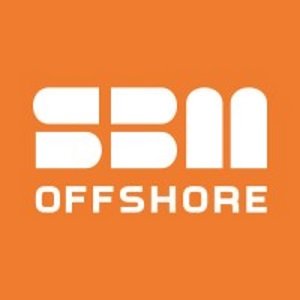SBM Offshore - Experts & Thought Leaders
Latest SBM Offshore news & announcements
ABS issued an approval in principle to SBM Offshore for its concept of a near-zero floating production storage and offloading (FPSO) unit. The NearZero FPSO design incorporates low-carbon technologies that collectively create a 'Near Zero' Scope 3 carbon emissions profile, achieving up to 80 percent reduction in GHG emissions. Low carbon technologies The introduction of the NearZero FPSO is an important step in SBM’s strategic path to achieve net-zero emissions by 2050. ABS completed design reviews based on class and statutory requirements. Low carbon technologies featured in the FPSO concept at a systems level include all electric topsides, closed flare, carbon capture and seawater intake riser/deep intake sea hose – technologies that SBM says not only reduce carbon emissions but also power demands. SBM Offshore’s NearZero FPSO design Intro of the NearZero FPSO is a vital step in SBM’s strategic path to achieve net-zero emissions "We are proud to continue to support SBM Offshore and their comprehensive strategy to address carbon emissions. The NearZero FPSO concept integrates low carbon technologies with a high degree of technical readiness and can be implemented on FPSO projects today," said Miguel Hernandez, ABS Senior Vice President, Global Offshore. "The introduction of SBM Offshore’s NearZero FPSO design marks an important milestone in our decarbonisation strategy. The NearZero FPSO design is fully integrated with our proven Fast4Ward® design and standardised delivery model. As such, we are ready to offer this to the market in close collaboration with our technology partners," said Jaap-Harm Westhuis, SBM Offshore Technology and Product Development Director. SBM Offshore’s development efforts Jaap-Harm Westhuis adds: "This approval by ABS is evidencing SBM Offshore’s pioneering development efforts in this field over the last years. We are proud to collaborate with our partners and to make a significant contribution to low-carbon offshore energy production." ABS has a long history of supporting FPSO projects and classed the first FPSO vessel in U.S. waters in 1978. ABS continues to lead in providing guidance on safety and innovation with new technology that supports larger, more complex FPSOs for sustainable operations globally.
The ABS-classed Liza Unity has become the first FPSO in the world to receive the SUSTAIN-2 notation from ABS. The notation is the next level in the vessel sustainability program developed by ABS to help fleets meet the environmental and human elements requirements contained in the strategic Sustainable Development Goals (SDGs) from the United Nations. Usage of low-carbon fuels SUSTAIN-2 recognises additional attributes such as the usage of low-carbon fuels Liza Unity was the first FPSO to receive SUSTAIN-1 in 2021, recognising sustainability-related aspects like pollution control and waste management. SUSTAIN-2 recognises additional attributes such as the usage of low-carbon fuels and human-centered design. “ABS continues to work closely with our clients to develop innovative solutions for new market challenges. With the award of SUSTAIN-2, we are proud to continue to support SBM Offshore and their comprehensive strategy to address sustainability considerations,” said Miguel Hernandez, ABS Senior Vice President, Global Offshore. SBM Offshore’s commitment Alex Glenn, COO at SBM Offshore stated: “We are very proud that Liza Unity has become the first FPSO to be awarded the advanced SUSTAIN-2 notation by the American Bureau of Shipping (ABS)." "This achievement highlights SBM Offshore’s commitment to protecting the environment by adhering to stringent standards for emissions reduction, pollution management and life cycle sustainability.” SBM Offshore’s Fast4Ward® program The Liza Unity FPSO is owned by ExxonMobil Guyana Limited and operated by SBM Offshore The Liza Unity FPSO is owned by ExxonMobil Guyana Limited and operated by SBM Offshore. It was the second FPSO built for ExxonMobil’s Stabroek Block development in Guyana. It was also the first FPSO delivered under SBM Offshore’s Fast4Ward® program and has an installed production capacity to produce approximately 220,000 barrels of oil per day. Innovation with new technology ABS has a long history of supporting FPSO projects and classed the first FPSO vessel in U.S. waters in 1978. ABS continues to lead in providing guidance on safety and innovation with new technology that supports larger, more complex FPSOs for sustainable operations globally.
Representatives from ABS and IMODCO Terminals SA, a division of SBM Offshore, met at Gastech 2024 where ABS issued approvals in principle (AIPs) for a range of jetty-less New Energy Terminal concepts to move frequent, large-volume ammonia transfers away from shore. IMODCO is applying a proven jetty-less system for moving crude oil to support the supply chain for new fuels such as ammonia. Mitigating ammonia leaks ABS reviewed the designs for IMODCO’s Catenary Anchor Leg Mooring (CALM) buoy, CALM soft yoke, and Tower Loading Unit (TLU), which offer ammonia carriers a connection to onshore ammonia refineries or storage via subsea pipelines. Conventional pipelines require jetty terminals that are typically located near populated areas. Moving the transfers away from the shoreline via subsea pipe mitigates the risk of ammonia leaks into populated areas. Safe energy transition “ABS is committed to supporting a safe energy transition for the marine and offshore industries,” said Miguel Hernandez, ABS Senior Vice President of Global Offshore. "As ammonia production and transportation are expected to grow rapidly in the coming decades, we must take every step possible to mitigate risks and preserve the environment." Safety and cost efficiency ABS is uniquely positioned to support the safe application of new technologies “Leveraging over 65 years of offshore expertise, IMODCO, representing SBM Offshore, is contributing to a better and safer world by supporting safe ammonia transfers,” said Philippe Lavagna, Product Account Manager for Terminals for New Energies, IMODCO, part of SBM Offshore Group. "In collaboration with key value chain stakeholders, including ABS, we are committed to promoting the use of jetty-less systems to enhance safety and cost efficiency for large and frequent ammonia transfers." Sustainable practices Following the meeting at Gastech 2024, ABS and IMODCO will continue to work together on a portfolio of solutions supporting the global energy transition. As the provider of classification services for the marine and offshore industries, ABS is uniquely positioned to support the safe application of new technologies as the global industry moves toward more sustainable practices.















